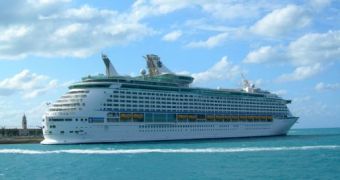Nowadays, not only aviation is blamed for its enormous carbon footprint. Waterway shipping also plays a major part in lowering air quality, because of its high level of greenhouse gas emissions reaching the atmosphere.
However, things are about to change, since experts are analyzing the effects of a new eco-friendly technique, called air lubrication, expected to make vessels up to 20% more fuel-efficient in the near future, according to Midwest Energy News.
Apparently, the main idea is to inject air under the bottom of the ship to lover the level of friction and help the boat travel faster, while consuming less fuel. The idea is being tested by a team from University of Michigan.
Once implemented, it could revolutionize ships, making them more eco-friendly and cheaper to operate. According to researchers actively involved in this project, the whole process depends on a blower, injecting water under the bottom of the vessel, which would increase the total costs of the operation and make it less feasible for commercial use.
At the same time, supporting a new generation of improved, fuel-efficient vessels appears to be a better strategy than reconditioning the old ones to meet the same standards.
“If you think about places in the U.S. where the benefit of fuel savings and reduced emissions would be helpful, it’s the Great Lakes.From an engineering and energy savings standpoint there’s a benefit, but what we’d need to do with a ship owner and operator is determine the payback time in the cost of retrofitting,” stated Steven Ceccio, one of the experts from University of Michigan.
Such changes would have a beneficial impact in the US. However, this technique is not entirely new, since it is already exploited properly by important companies from Japan and Europe. Mitsubishi is successfully using it, experiencing fuel reduction and financial advantages.
Experts from University of Michigan hope air lubrication could soon be backed by appropriate investments, to start gaining popularity in the Great Lakes.

 14 DAY TRIAL //
14 DAY TRIAL //